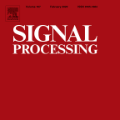The dramatic success of deep learning is largely due to the availability of data. Data samples are often acquired on edge devices, such as smart phones, vehicles and sensors, and in some cases cannot be shared due to privacy considerations. Federated learning is an emerging machine learning paradigm for training models across multiple edge devices holding local datasets, without explicitly exchanging the data. Learning in a federated manner differs from conventional centralized machine learning, and poses several core unique challenges and requirements, which are closely related to classical problems studied in the areas of signal processing and communications. Consequently, dedicated schemes derived from these areas are expected to play an important role in the success of federated learning and the transition of deep learning from the domain of centralized servers to mobile edge devices. In this article, we provide a unified systematic framework for federated learning in a manner that encapsulates and highlights the main challenges that are natural to treat using signal processing tools. We present a formulation for the federated learning paradigm from a signal processing perspective, and survey a set of candidate approaches for tackling its unique challenges. We further provide guidelines for the design and adaptation of signal processing and communication methods to facilitate federated learning at large scale.
翻译:深层次学习的巨大成功主要归功于数据的可用性; 数据样本往往在智能电话、车辆和传感器等边缘设备上获得,在某些情况下由于隐私考虑而无法共享; 联邦学习是一个新兴的机械学习模式,用于掌握当地数据集的多边缘设备的培训模式,而没有明确地交换数据; 以联合方式学习不同于常规的中央机器学习,并提出了与信号处理和通信领域所研究的典型问题密切相关的若干核心独特挑战和要求; 因此,来自这些领域的专门计划预计将在联合学习的成功以及从中央服务器领域深层学习向移动边缘设备过渡方面发挥重要作用; 在本篇文章中,我们为联合学习提供了一个统一的系统框架,以概括和突出使用信号处理工具处理的自然主要挑战; 我们从信号处理角度为封闭式学习模式提供了一种配方,并调查了一套应对其独特挑战的候选方法。 我们还为设计和调整信号处理和通信方法提供了指南,以便利大规模联合学习。




